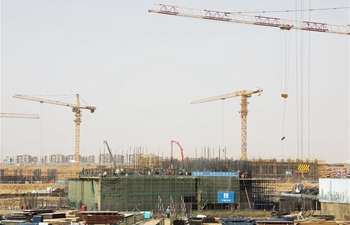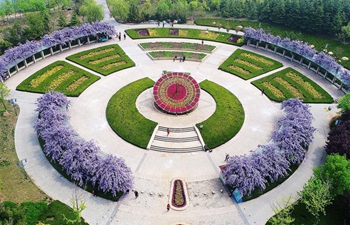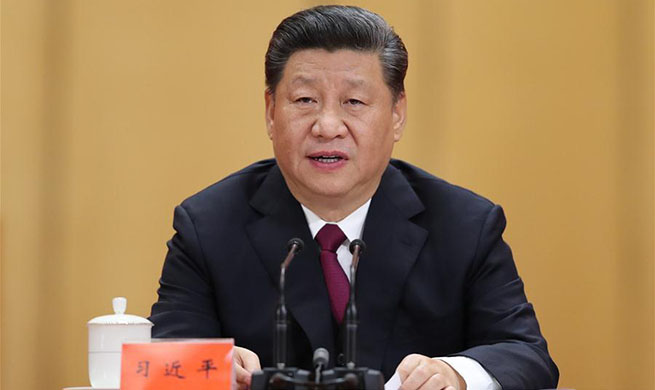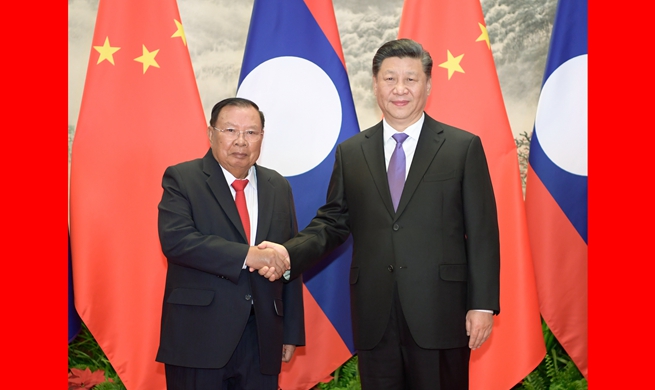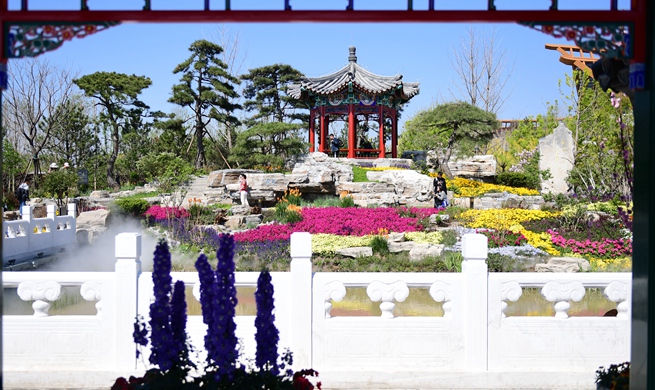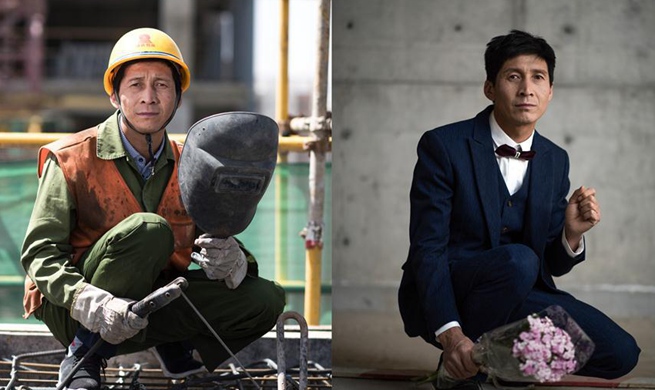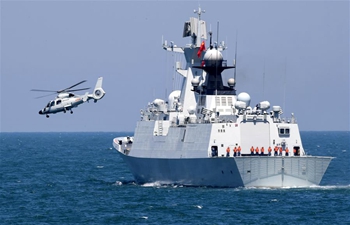ROME, May 1 (Xinhua) -- The need for jobs and investments to kickstart the nation's stagnant economy were the dominant themes as Italy on Wednesday marked International Workers' Day, or May Day, with official celebrations, trade union marches, and traditional outdoor concerts.
In a speech to the nation at the Quirinal presidential palace in Rome, President Sergio Mattarella expressed his solidarity with the unemployed, the underemployed, and the underpaid.
"Jobs and public education...have been the most efficient tool to bring about social equality in republican Italy," Mattarella said in reference to social policies fielded to eradicate poverty and illiteracy in postwar Italy since the country became a republic in 1946.
"Without jobs, the right to citizenship itself is rendered incomplete, the dignity of the individual is mortified, and social solidarity and the very possibility of development for society are compromised," Mattarella continued, going on to express his solidarity with "all those who are looking for a job and still can't find one, those who have lost their jobs, those who are employed on an insecure or occasional basis, and those who work but aren't paid enough to support themselves and their families."
On Tuesday, national statistics agency ISTAT reported that the overall unemployment rate dipped month-on-month by 0.4 percent to 10.2 percent and the youth jobless rate fell by 1.6 percent to 30.2 percent in March compared to February.
While the drop in the unemployment rate is a positive sign, Mattarella said "it is not a level that can satisfy us. Jobs are lacking in large areas of the country. And the consequences of this condition are serious."
The president went on to warn that the Italian economy is "facing a time of weakness" in addition to "the objective burden of public debt, which imposes on us the need for particular care and attention in order to strengthen investor confidence (and) strike a balance between realistic spending programs and financing."
Italy's current rightwing-populist government, which took office in June 2018, has been widely criticized by trade unions, the business sector, and the opposition for choosing to finance costly welfare measures through deficit spending, thereby driving up Italy's bloated public debt while doing little to stoke the economy through public investments.
By the end of 2018, Italy's public debt stood at upwards of 2.3 trillion euros or 132.2 percent of GDP, according to the Bank of Italy. This means that Italy owes far more than it produces, and therefore it lives on borrowed money -- a fact that policymakers must deal with if they want to finance their budgets without alienating investors and driving the country into an economic tailspin.
This sentiment was echoed by the leaders of Italy's "big three" national trade unions -- CGIL, CISL and UIL -- which, according to official union membership numbers, represent about 10.8 million workers, and which this year held their traditional May Day march in the northern city of Bologna under the slogan "Our Europe: Jobs, Rights, the Welfare State".
At least 30,000 people reportedly turned out for the march, during which union leaders said recent ISTAT data showing that Italian gross domestic product (GDP) rose by 0.1 percent in the first three months of the year compared to that of 2018 is nothing to be overjoyed about.
"0.1 isn't even a phone prefix," Maurizio Landini, the secretary-general of the Italian General Labor Confederation (CGIL), the biggest and most leftwing of the "big three" unions, told Sky TG24 private broadcaster in an interview during the march. "If we look at the data, we still have extremely high unemployment and the lowest investment level in Europe: policies must change, and radically."
"Those who do work, are still poor," Landini added. "If the government truly wants to change this situation, it must accept that it needs to change its economic and social policies."
Landini promised that if policymakers won't listen, labor will show its dissent with a series of upcoming national strikes in sectors including farming, steel, civil servants, and pensioners.
"The numbers don't add up," he said in reference to the government's budget. "The wealth that is being created must be redistributed in order to create jobs and make investments."
"Plus 0.1 percent or minus 0.1 percent is not the issue," Italian Confederation of Workers' Unions (CISL) leader Anna Maria Furlan said in televised comments. "The fact is we still have one million unemployed people...we need to talk seriously about growth and development, therefore about employment. The government's economic policy needs to change, because the current one has blocked the country."
Also in televised comments during the march, Italian Labor Union (UIL) chief Carmelo Barbagallo called for the government to cut taxes for the working class and pensioners and to raise the minimum wage -- a promise the populist Five Star Movement led by Deputy Prime Minister Luigi Di Maio made in a May Day statement on its official website.
Smaller May Day marches were also held in a number of other cities across the nation, including in Turin, where activists from the "No-TAV" movement -- which opposes the building of a high-speed rail link between the northern city and the French city of Lyon, and which made up part of the grassroots that gave birth to the Five Star Movement -- tussled with activists from the center-left opposition Democratic Party. Police had to intervene, and were seen swinging their billy clubs at protesters in televised footage.
May Day for Italians is also synonymous with "big concert" in Rome, with smaller outdoor concerts held in other cities such as Naples, Milan, Pescara, and Taranto.
May Day has been celebrated in Italy since the end of the 19th century.
